Terry Venables: A ‘players’ man’ who nearly guided England to glory remembered
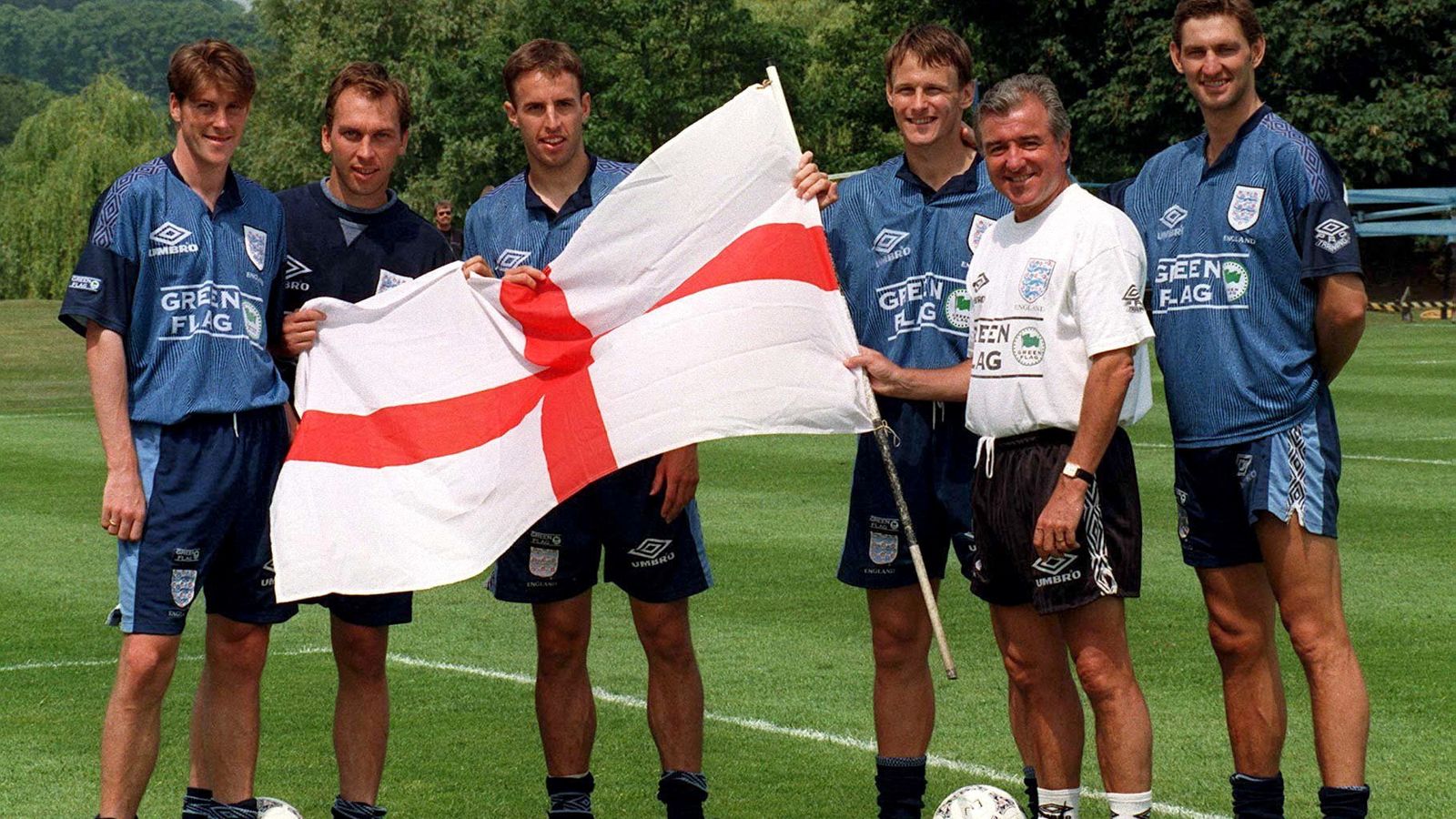
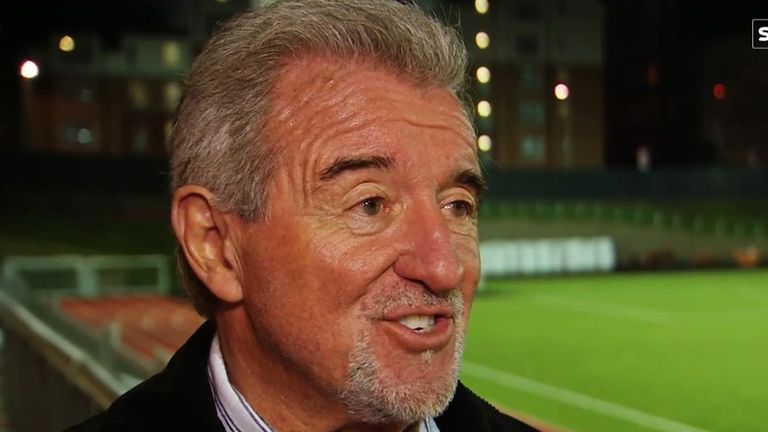
In 1996, Terry Venables was against the clock, managing the England national team in his last tournament.
Under intense scrutiny for his business dealings, MP Kate Hoey famously declared that Venables was unfit for the post of national team manager.
But in Euro 96, the former midfielder took England within one penalty of their first international final since 1966.
Read more:
Former England manager Terry Venables dies
Live updates: ‘RIP boss’ – England footballers lead tributes
While falling to Germany in a nail-biting semi-final, with now England manager Gareth Southgate infamously missing his spot-kick, Venables won hearts and minds for taking England so far.
Gary Lineker called him the “best, most innovative coach that I had the privilege and pleasure of playing for”.
Please use Chrome browser for a more accessible video player
1:31
Venables on his love for football
Gary Neville fondly said he was “without doubt the most technically gifted British coach we’ve ever produced”.
And Alan Shearer, who was the tournament’s top scorer with five goals, said today: “I owe you so much. You were amazing.”
Despite falling short in what turned out to be his last match as England manager, the self-described “player’s man” called 1996 the “best time of my life”.
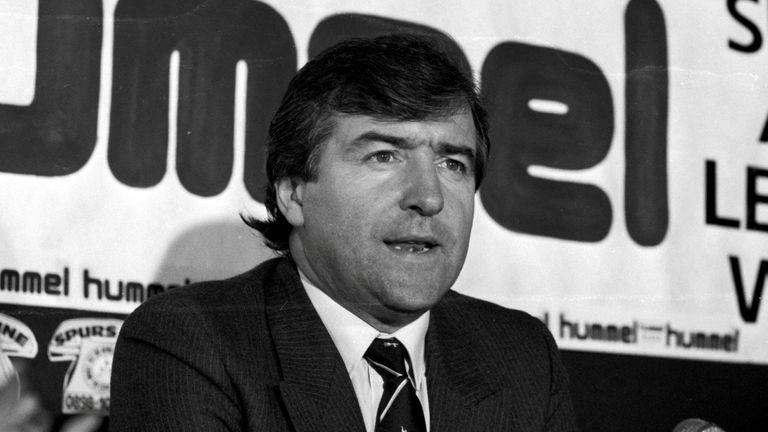
The one-time midfielder was born in Dagenham, Essex, on January 6, 1943, and was an only child.
Having shown promise as a footballer, he joined Chelsea as an apprentice in 1958 before signing professional terms two years later, and then winning a League Cup winners’ medal in 1965 following a 3-2 victory over Leicester.
He had earned his two England caps the previous year in fixtures against Belgium and Holland, having represented his country at schoolboy, youth, amateur and under-23 level.
It was his transfer to Tottenham in 1966 that led to his most successful period as a player, during which he won the following year’s FA Cup with a 2-1 victory over his former club.
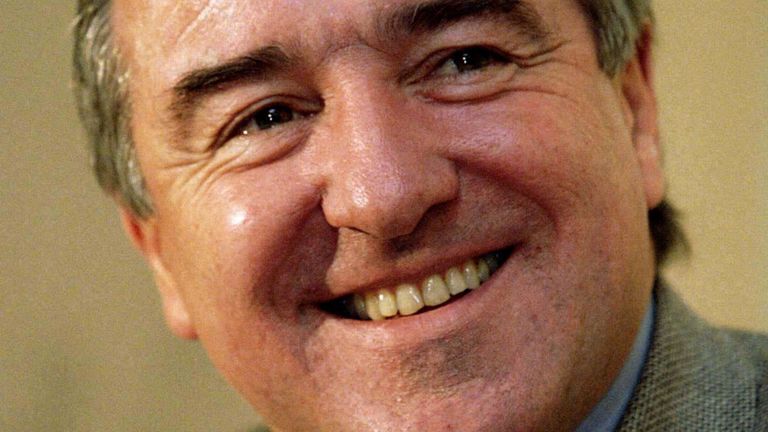
He left Tottenham for QPR in 1969, moving on five years later to Crystal Palace, where after one season he retired and joined the club’s coaching staff. In 1976, he started his career as a manager.
In a trait that made Venables unique during his managerial career, he co-wrote detective novels, which were later turned into the TV series Hazell about a wise-cracking cockney private eye. It ran for 22 episodes from 1978-79.
It proved a significantly bigger hit than one of his early business ideas – the ‘Thingummywig’, a hat with a built-in wig so women could go out without removing their curlers.
But back on the touchline, Venables led Palace to the Second Division in just one season. Another two seasons later and he had secured the league title and promotion to the First Division.

In October 1980, Venables resigned to take over as manager at QPR, leading the second-tier side to the 1982 FA Cup final, which they lost to Tottenham in a replay.
The next year, he guided them to the Second Division title, while becoming both their major shareholder and managing director.
He led QPR to a fifth-placed finish and qualification for the UEFA Cup in the 1983-84 campaign, but in May 1984 he became manager of Barcelona, and charmed their thousands of fans.
Later dubbed ‘El Tel’, Venables spoke to the fans in Catalan at his first match in charge and, more significantly, in his first season he led the club to their first Spanish league title in 11 years.
Venables signed Lineker and Mark Hughes during his time at the Nou Camp, also selling Diego Maradona.
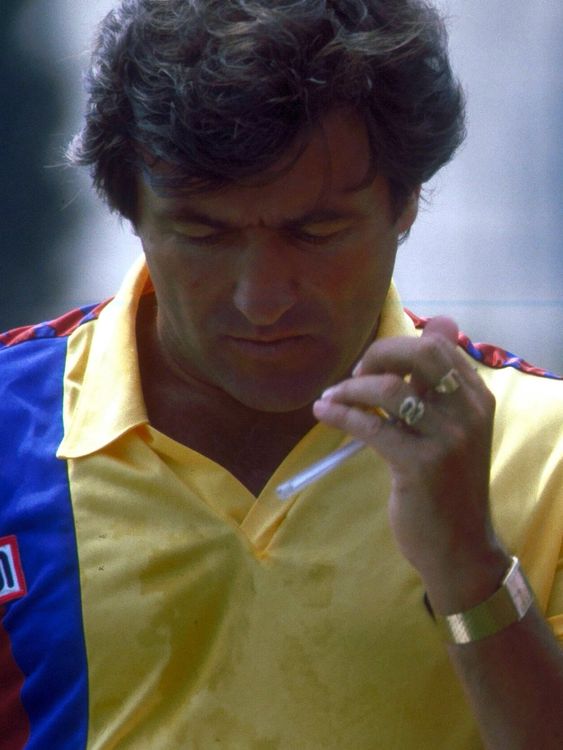
However, Barca only finished runners-up in the league during the following two seasons, also losing in the final of the 1986 European Cup as Romanian opponents Steaua Bucharest triumphed on penalties after a goalless draw.
His dismissal in September 1987 was followed by his appointment as Tottenham manager in October. He brought Paul Gascoigne to the club and linked up with Lineker again.
Venables led Spurs to 1991 FA Cup glory with a 2-1 victory over Nottingham Forest in the final, although the match was overshadowed by Gascoigne’s cruciate ligament injury.
When Venables and Alan Sugar won the takeover battle for the club that June, he was also appointed chief executive, but his relationship with the then chairman gradually broke down.
In 1993 Sugar sacked him, and later that year the BBC’s Panorama programme alleged misdealings connected with Venables’s businesses, which he responded to by threatening libel action.
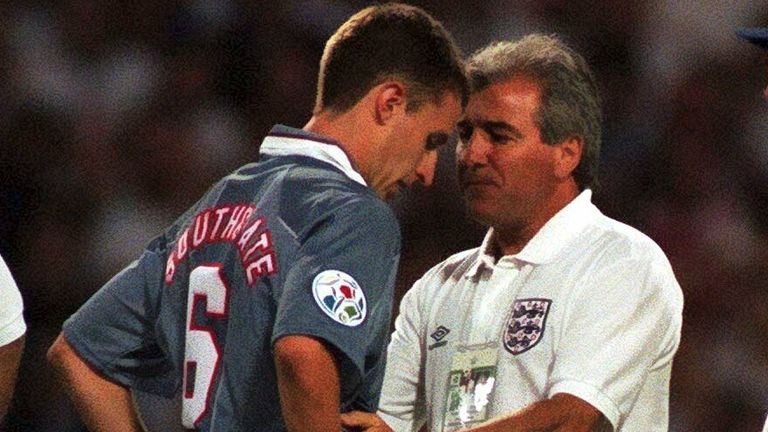
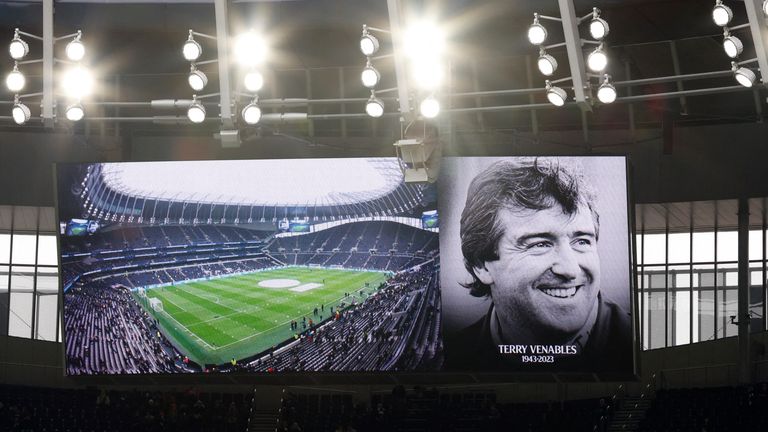
Despite any damage to his reputation, in January 1994 he was appointed England manager, and his first fixture in charge came two months later when they defeated Denmark 1-0 at Wembley.
That August, police also dropped their inquiry into allegations he paid Brian Clough a £50,000 bung to arrange a player transfer.
In January 1996, Venables revealed he would resign as England manager after that year’s European Championship to focus on pending court cases.
But with Arsenal’s Tony Adams as his captain at the heart of defence, Alan Shearer in form up front and a rejuvenated Gascoigne pulling the strings in midfield, England progressed to the knockout stages following a 4-1 thumping of Holland that still ranks as one of the Three Lion’s finest performances.
Venables’s use of the ‘Christmas Tree’ formation was considered instrumental to their success, which also included a penalty shoot-out victory over Spain in the quarter-finals.
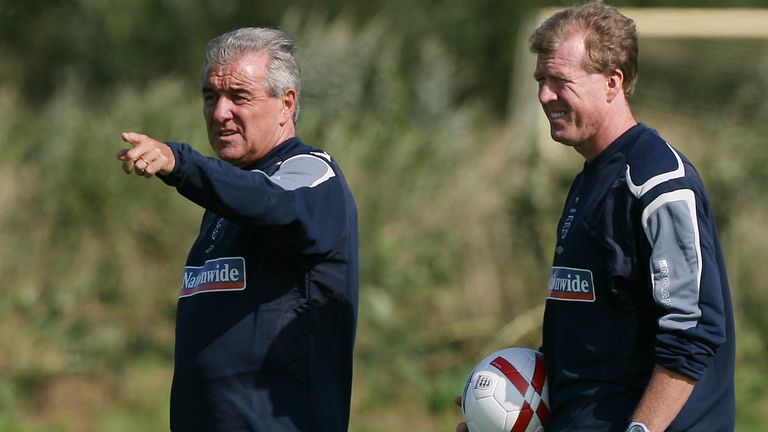
After the crushing defeat to Germany, Venables made an unexpected return to the sport as Portsmouth’s director of football in July the same year.
By November he had been appointed Australia manager, also becoming Portsmouth chairman, having bought the club for £1.
In January 1998 he stepped down from his role of chairman and also agreed to a High Court order banning him from holding company directorships for seven years.
His return to Palace as manager that April was short-lived, but he was recruited again, this time by struggling Middlesbrough, in December 2000.
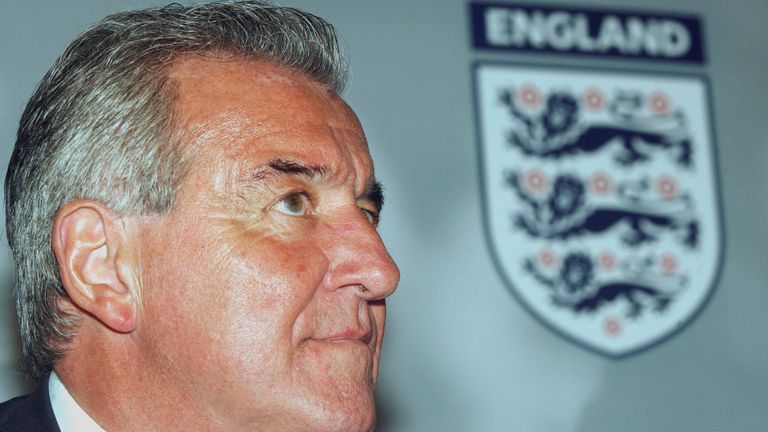
Having left after leading them to Premier League survival, in July 2002 he returned for one last job in club management, this time at financially troubled Leeds.
The sale of key players including Rio Ferdinand, Robbie Fowler and Jonathan Woodgate contributed to their plight and in March, as the threat of relegation loomed, he was sacked again.
Venables surprisingly returned to the England set-up as new manager Steve McClaren’s assistant in the summer of 2006. Failure to qualify for Euro 2008 saw them dismissed in November 2007.
Having speculated in clubs and property, his final business venture began in 2014 when he opened a boutique hotel and restaurant with wife Yvette in Penaguila, Spain.
Venables is survived by his wife and daughters Tracey and Nancy.